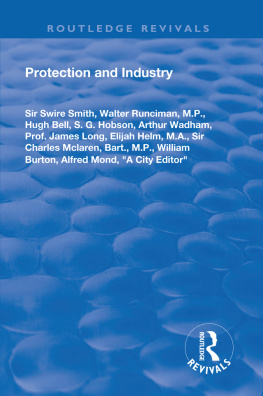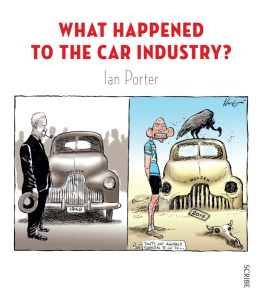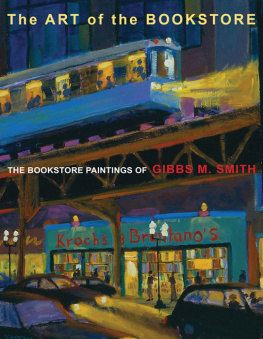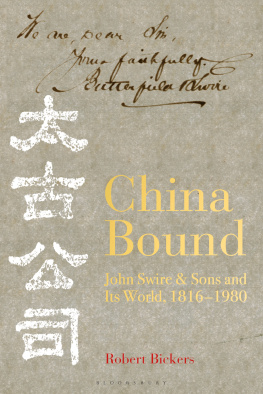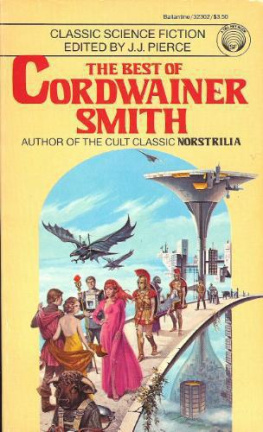Routledge Revivals
Protection and Industry
Protection and Industry
Swire Smith , Walter Runciman ,
M.P. Hugh Bell , S. G. Hobson ,
Arthur Wadham
James Long , Elijah Helm , M.A.
Charles Mclaren , Bart. , M.P.
William Burton , Alfred Mond
First published in 1904 by Methuen & Co.
This edition first published in 2018 by Routledge
2 Park Square, Milton Park, Abingdon, Oxon, OX14 4RN
and by Routledge
711 Third Avenue, New York, NY 10017
Routledge is an imprint of the Taylor & Francis Group, an informa business
1904 Taylor & Francis
All rights reserved. No part of this book may be reprinted or reproduced or utilised in any form or by any electronic, mechanical, or other means, now known or hereafter invented, including photocopying and recording, or in any information storage or retrieval system, without permission in writing from the publishers.
Publishers Note
The publisher has gone to great lengths to ensure the quality of this reprint but points out that some imperfections in the original copies may be apparent.
Disclaimer
The publisher has made every effort to trace copyright holders and welcomes correspondence from those they have been unable to contact.
A Library of Congress record exists under ISBN: 4029350
ISBN 13: 978-1-138-60210-6 (hbk)
ISBN 13: 978-1-138-60212-0 (pbk)
ISBN 13: 978-0-429-46262-7 (ebk)
PROTECTION AND INDUSTRY
BY
SIR SWIRE SMITH WALTER RUNCIMAN, M.P.
HUGH BELL S. G. HOBSON ARTHUR WADHAM
PROF. JAMES LONG ELIJAH HELM, M.A.
SIR CHARLES McLAREN, BART., M.P.
WILLIAM BURTON ALFRED MOND
"A CITY EDITOR"
Prefatory Note
THIS book contains a collection of articles, contributed by various writers to the Manchester Guardian, on the proposed revolution in British fiscal policy. Dealing with the subject from the point of view of each of the great industries of the country, and in the light of the experience of those who bring practical knowledge to bear on it, they unanimously declare in favour of the system under which Great Britain has not only developed her own prosperity to a point unparalleled in the world's history, but has taught the lesson of industrial success to other nations that have followed her example and in some cases improved on her methods. They demonstrate that trade cannot be improved by being fettered, and that if we wish to expand the activity of our exporters, we are not likely to do so by restricting the area from which they draw their supplies, making their supplies dearer, raising their wages bill with no benefit to the worker, narrowing the markets in which their products can be sold, and reducing the basis of British commerce to a state of vacillating uncertainty, founded on that quaking quicksand, the exigencies of party politics. Yet all these results follow inevitably from the adoption of Protection in any of the moulds in which it is now being dished up to suit the shifting requirements of opportunist electioneering.
But this is by no means all. Besides the destructive criticism levelled at the attempt to trick out an old fallacy in a new and attractive coat of many colours, these chapters will be found to contain solid suggestions as to real improvements by which the condition of British trade might be bettered. The export trade of our foreign rivals undoubtedly grows at a faster rate than ours. In so far as this is due to their more rapid growth in population, this is inevitableunless we mend the pace of our birth-rate. In so far as it is due to sales abroad below cost price at the expense of the rest of the community, this is an example that we surely need be in no hurry to follow. But in so far as it is due to the application of more skilful and highly trained intelligence on the part of employers and workers who produce, and the merchants, agents, and travellers who handle and distribute, the commodities that are sold abroad, and also on the part of those Government departments which have to watch over the efficient conduct of trade, there are lessons to be learnt and constructive measures to be carried. If the present discussion can be turned in this direction, lasting and immeasurable good may be its result. It cannot be urged too strongly on all Free Traders that they should seize this opportunity, and, not content with destroying Protectionist arguments, bring forward, as an alternative policy, solid proposals for strengthening the joints in the harness of British industry. We have to deal with railway rates, shipping rings, a slow, clumsy, and expensive legal system, Parliamentary delays, and departmental red tape; we have to restore, with the example of Germany before us, our system of water-communication, long smothered by the railway companies in the interests of their monopoly; and, above all, we have to educate and encourage intelligence, adaptability, and diligence in all ranks of the commercial hierarchy. The whole question is admirably summed up by a sentence in Sir Swire Smith's chapter on the Woollen Industry"The battle is to the skilful more than to the protected."
Contents
By SIR SWIRE SMITH
By HUGH BELL
By ARTHUR WADHAM
By ELIJAH HELM, M.A.
By SIR CHARLES MCLAREN, BART., M.P.
By WALTER RUNCIMAN, M.P.
By S. G. HOBSON
By PROF. JAMES LONG
By WILLIAM BURTON
By ALFRED MOND
By "A CITY EDITOR"
Guide
PROTECTION AND INDUSTRY
I
The Woollen and Worsted Trades
BY SIR SWIRE SMITH
OF all British industries that of wool has suffered most from the protective tariffs of other countries. It may be that each country having a wool industry of its own has desired to develop it, and under free imports this was difficult, if not impossible, in face of the competition of Britain.
Until the latter part of the eighteenth century the wool industry was universally what it has still remained in sparsely populated regions away from coalfields and factories, a domestic industry. In this island it was mainly carried on in the farmhouses and cottage homes of the people, but even in the days when it was conducted entirely by hand, and when the equipment of the spinners and weavers was no better than that of their rivals in other countries, it was perhaps the most highly organised of all the industries of the country. It was said by Macaulay that at the close of the seventeenth century the production of wool and its manufactures constituted "the most solid foundations of the national prosperity and riches."
The modern system of spinning began by the adaptation, a little over a hundred years ago, of the inventions of Hargreaves and Arkwright, which had been successfully applied to cotton. The power-loom, combing machine, and other inventions followed, nearly the whole of which were of British origin and manufacture. In the early part of last century the wool industry developed into diversified forms, necessitated by the character of the raw material, the broad divisions being worsted, representing the long combed wool; woollen, representing the short carded wool; and the noils, from the combed wool; while a new woollen industry called shoddy and mungo sprang up, and afterwards attained considerable magnitude in utilising the waste products of wool, such as old clothes, woollen rags, worn-out stockings, etc., which were worked up and manufactured into cloth. The introduction of steam and the improvement of Watt's steam engine led to the building of factories and the organisation of the factory system, and for a considerable period this country enjoyed something like a monopoly in the production of machine-made goods. But the people of this and other countries were so poor, the means of communication were so difficult and costly, and, above all, the tariffs of the various countries, and especially of our own, were so prohibitive, that the progress of the trade was seriously retarded.



